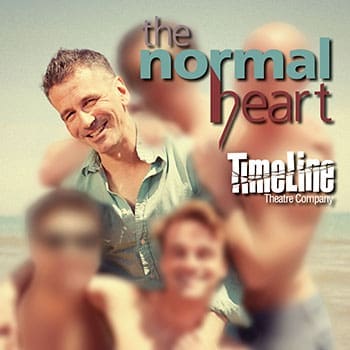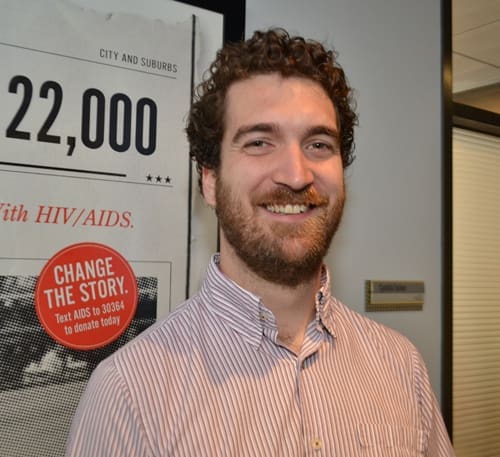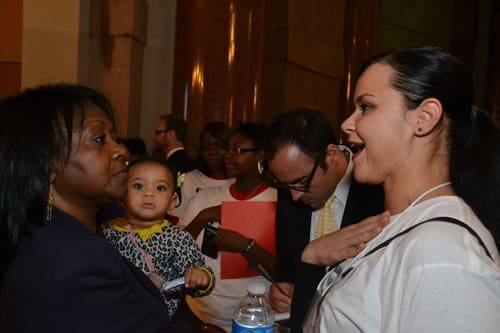 Chicago, brace yourself.
Chicago, brace yourself.
The Windy City is welcoming Larry Kramer’s Tony Award-winning play, The Normal Heart, to TimeLine Theatre Company, and the AIDS Foundation of Chicago (AFC) is selling tickets for Saturday, November 2 and Sunday, December 1, which is World AIDS Day.
Proceeds benefit AFC—but only on these dates, and only if you reserve your seat through AFC.
Tickets are selling quickly, and for good reason.
The drama, directed by Nick Bowling, is set in the early 1980s, at the height of public and private indifference to the AIDS epidemic. People aren’t sure what this mysterious disease is, how it’s spreading, or who is at risk of contracting it.
Government officials, the general public, even factions of the gay community are uneasy about the crisis, causing them to approach it passively, if at all.
Except for one person.
Ned Weeks, played by David Cromer, is a confrontational activist in New York, fighting to bring attention to this disease that’s plaguing gay men. He organizes likeminded individuals and creates a grassroots movement that struggles to gain steam in a culture that would rather be blind than face reality.
Given this context, some might be tempted to label the play as dated, as a distant memory of where the epidemic is today, but they couldn’t be more wrong.
Yes, modern medicine has given individuals an opportunity to live with HIV, not die from AIDS. But the stigma and labels associated with this disease continue to stand between people and lifesaving resources.
AFC estimates that more than 35,000 people are living with HIV in the Chicago metropolitan area; however, less than half have access to care. Half. That means that 50 percent of this population is living with a life-threatening disease and is at risk of transmitting it. What’s more, studies approximate that over 6,000 people don’t even know they’re infected.
The Normal Heart plays a role in addressing these discrepancies.
The play provides a window to our past, showing us the injustice that surrounded HIV/AIDS in the early ‘80s. It then challenges us to look at the injustices that continue to mark the epidemic today.
Reserve your tickets now for Saturday, November 2 and Sunday, December 1!



